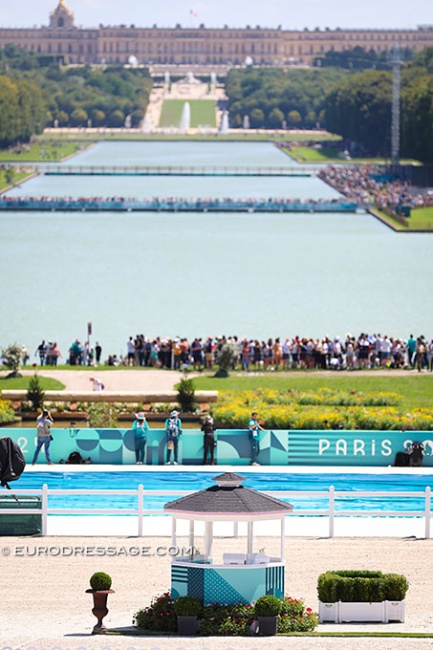
There is nothing cooler than the Olympic Games if you are a sport and competition loving person. If you think Aachen is great, you have no clue what atmosphere, electricity and uniqueness the Olympics bring. I am attending my fourth, consecutive Games as a journalist and photographer and my anticipation and excitement for the Games only increases with every cycle instead of thinking "been there, done that."
The first six months of 2024 have all been about counting down towards the Games and finally the day, or let's say week, has come ! I'm in Versailles and savouring the magic. The first two days have not brought the best weather. On my arrival on Friday morning it was overcast (but not cold), on today eventing dressage kicked off in the pouring rain. We know that these floodgates will stop tomorrow and it seems like the weather gods will be blessing dressage with hot summer weather next week.
The Anticipation, the Drama
The importance of the Games is undeniable and even bring a rider like Edward Gal out of his (semi-)retirement or extended sabbatical. In the winter the tension was palpable as the last sales of Olympic hopeful (team) horses took place before the 15 January deadline. An anaemic American dressage team infused new blood with the acquisition of Helix and Bohemian and a late rider swap of a rising GP horse (Marcus Orlob on Jane) proved to be the spark of hope for U.S. Dressage.
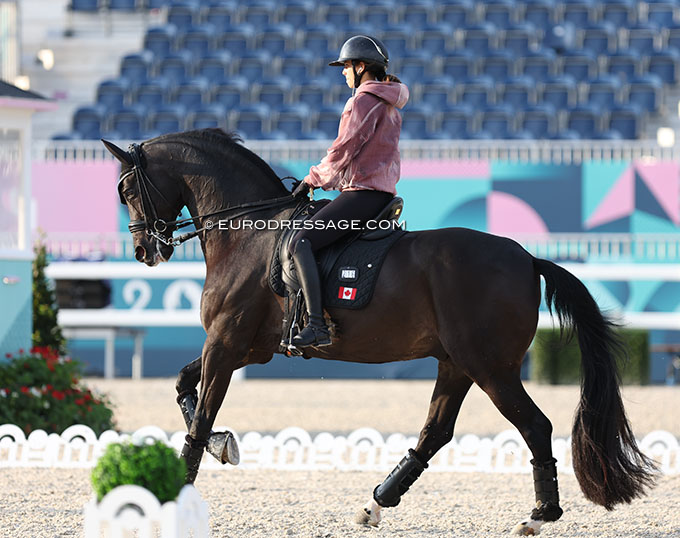
Training Camps
Slowly nations came together and hosted their pre-Olympic training camps. The Americans landed in Europe but initially team spirit hadn't traelled along as the short listed riders all housed at separate stables before team nomination: Lyle at Sportpferde Im Brook, Peters at Gut Bertingloh, Orlob with Johan Zagers, Buffini at Hof Kasselmann.
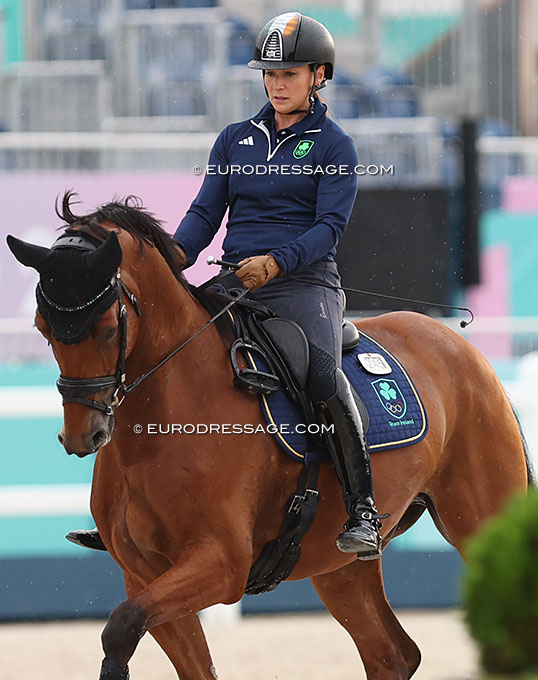
Olympic Glory and Visibility
While the animal activists like to see equestrian sport removed from the Olympic programme, for the sport the Games are the most important platform to promote the beauty of the partnership between human and animal. Over a billion people around the world are expected to tune in but equestrian sport is considered a "niche within a niche."
USA Today wrote this afternoon, "when cynicism takes hold about how human beings treat animals in pursuit of money or Olympic medals, good luck trying to change the narrative. We’ve seen it in horse racing every time there’s a catastrophic breakdown on national television: Just because it’s part of the game does not mean it will be acceptable to the public."
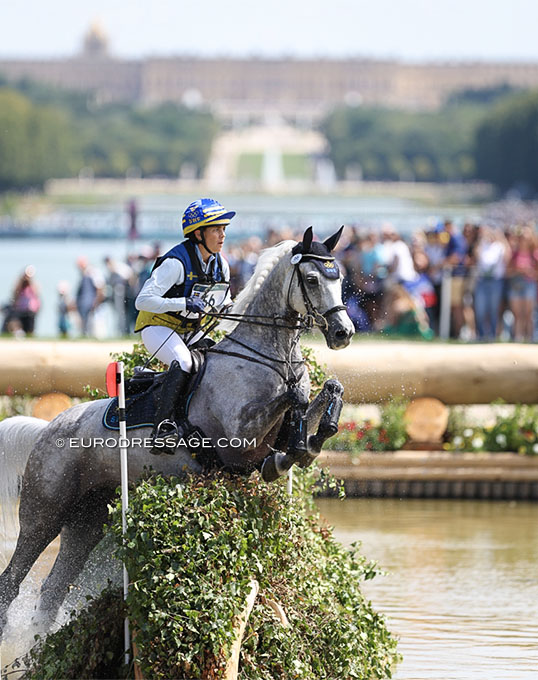
most spectacular cross country course ever
USA Today believes that "Equestrian is an eminently replaceable sport that would do well to understand how few people would miss it if it went away from the Olympics. They need to figure out a way to talk about this mushrooming problem. They need to figure out how to root out and severely punish anyone who hurts animals so that the public can have the same confidence these elite competitors do in the value of their competition. They need to stop the abuse. And they need to do it now."
Riding at the Games is an invaluable and career-defining experience for a rider but personal ambition may never come at the cost of mistreating the horse to achieve that goal. I think any animal loving person agrees with that, the problem is that even the abusers say they love their horses. For some an institutionalized and traditional way of handling horses (man dominates-domesticates animal by force) needs to be eradicated.
Sunshine
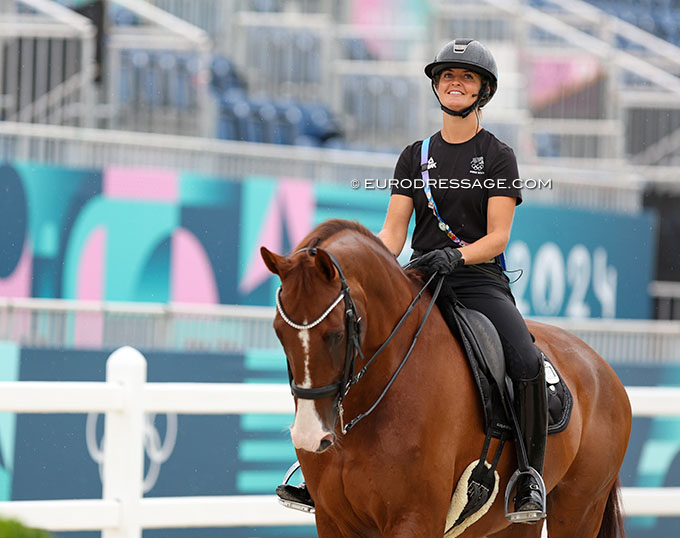
New Zealand's Melissa Galloway